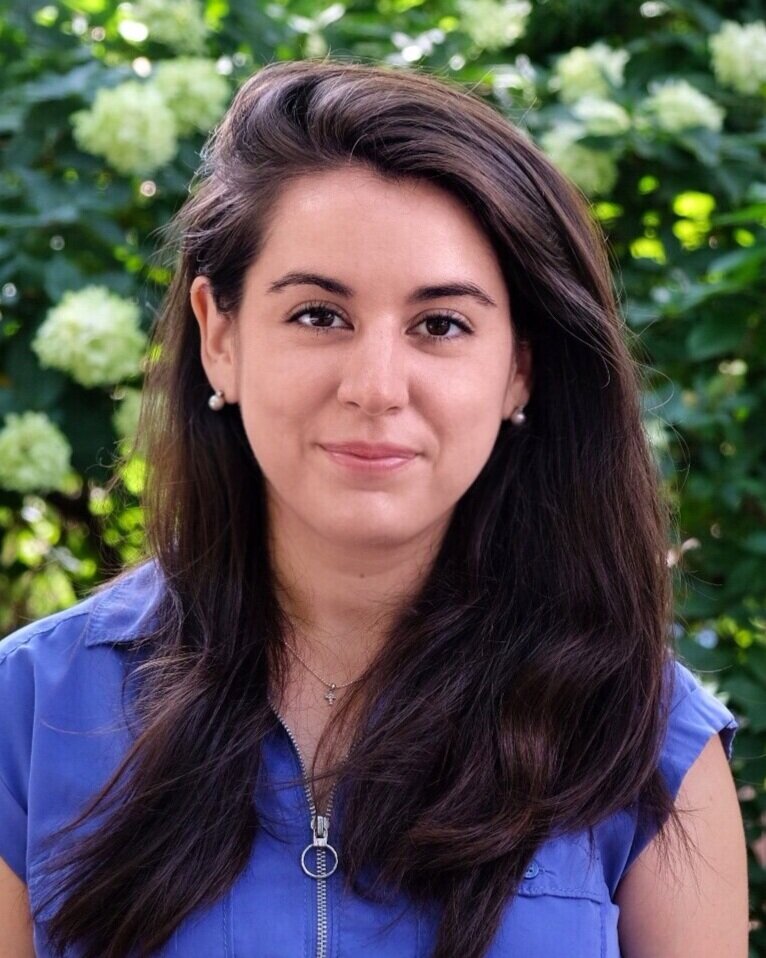Dr. Ream Al-Hasani
Assistant Professor St. Louis College of Pharmacy
Post-Doctoral Fellow Washington University in St. Louis
Ph.D. in Neuropharmacology University of Surrey
Growing up in the UK, Dr. Ream Al-Hasani was the only Muslim girl in her school. Her family moved there from Iraq to follow her father’s academic career. “They wanted to come back [to Iraq] after having me, but all the wars made them stay,” Ream remembers. Ream had to often face comments like “Oh you are Middle Eastern and Muslim, but you are normal!”—“Whatever ‘normal’ means,” Ream points out. But those comments did not stop her. Despite the scarcity of Middle Eastern women in science at the time, and fueled by fascination with unanswered questions, Ream decided to study how drugs affect the brain.
After completing her undergraduate degree in Pharmacology at the University of Portsmouth (UK), Ream spent a year as an intern in the Neurology Department of the pharmaceutical company GlaxoSmithKline, studying neurodegeneration and neuroinflammation. At that point, Ream realized she wanted to stay in the field of neuroscience. But it wasn’t until a summer trip in Italy, as she was waiting for a train contemplating a career in academia versus industry, that she made the decision to pursue a PhD. Her family was extremely supportive of her decision, acknowledging that she would be the first woman in their family to obtain her doctorate.
Back in the UK, Ream started graduate school at the University of Surrey to study the interaction between adenosine and dopamine receptors in morphine addiction. Her PhD project bridged the expertise of Dr. Susanna Hourani in adenosine receptors and Dr. Ian Kitchen in opioid addiction. While Ream initially set out to look for behavioral abnormalities in two different knockout models of A2A adenosine receptors, this project presented significant challenges that led her to change her research direction. She went on to study pharmacological differences in the subcortical circuitry during addiction which led her to discover that drug addiction changes the adenosine and dopamine signaling in the ventral tegmental area (a key area in the reward system).
After a gap year traveling around the world from India to Chile, Ream decided to move to the US to expand her research expertise. She joined the lab of Professor Michael Bruchas at the Washington University in St Louis , where she focused on kappa opioid receptors and their mechanism of action. Kappa receptors, similar to other opioid receptors, drive an analgesic effect but do not lead to addiction. However, they do lead to the release of dynorphin, an opioid peptide that is responsible for dysphoria. Her work helped to dissociate the mechanisms of pain, separating the physical pain component from the negative affect.
After her post-doc in the Bruchas lab, Ream and her husband (Dr. Jordan McCall, who is also a neuroscientist) considered moving back to the UK. But at that point, the Center for Clinical Pharmacology, a collaboration between Washington University in St. Louis and St. Louis College of Pharmacy, was established. After a chat with Dr. Karen Seibert, Executive Director of the Center, Ream chose to stay and establish her lab there. Ream and Jordan were the first hires of the Center and were involved in shaping not only its facilities, but also its research environment. “What was exciting for me was that it was a new center that did not have anyone in it (...), [my husband and I] have been learning so much more than just running a lab, which I think is valuable going forward”.
Today, Ream’s lab is interested in the mechanisms of addiction, drug withdrawal, and how opioid analgesics interact with the endogenous opioid systems. In line with the Center’s vision, Ream is committed to finding balance between doing good science and making it applicable to patients. Currently, Ream's lab is working to establish a protocol to detect neuropeptides in vivo, starting with opioid peptides, and to make that protocol available to the community. Knowing which peptides have been released, when they are released, and how long it takes to recycle them has been a challenge in opioid research, and overcoming that hurdle will bring the bench nearer to the clinic.
Throughout her training, it became clear for Ream that there weren't many Middle Eastern women at her same career stage. With the exception of really established ones (e.g. Dr. Bita Moghaddam, Dr. Huda Zoghbi or Dr. Huda Akil), it wasn't common for women from the Middle East to choose a career in neuroscience at that time. But today, there is more diversity in the new generation of students pursuing this path. "It's a surreal experience becoming a role model to trainees when I still consider myself a trainee also continuing to look for role models I can identify with!" Ream explains. Finding herself in this new position of role model, Ream is vocal about the importance of increasing PIs’ awareness of the extra stressors on Middle Eastern trainees and others coming from war-torn countries. “It’s not only the PI’s fault if they are not aware - we all share responsibility to make them aware”. Biases against foreign names, issues with visas, and a sense of guilt about studying abroad rather than being with family are all a part of everyday life for Ream and others who come from similar backgrounds. With all her accomplishments as a Middle Eastern woman in science in the US and the supportive culture she is creating in her own lab, Ream is making long-lasting contributions to the field of addiction research and towards making academia a welcoming place for minorities.
Listen to Nancy’s interview with Ream on December 10th, 2019 below!



